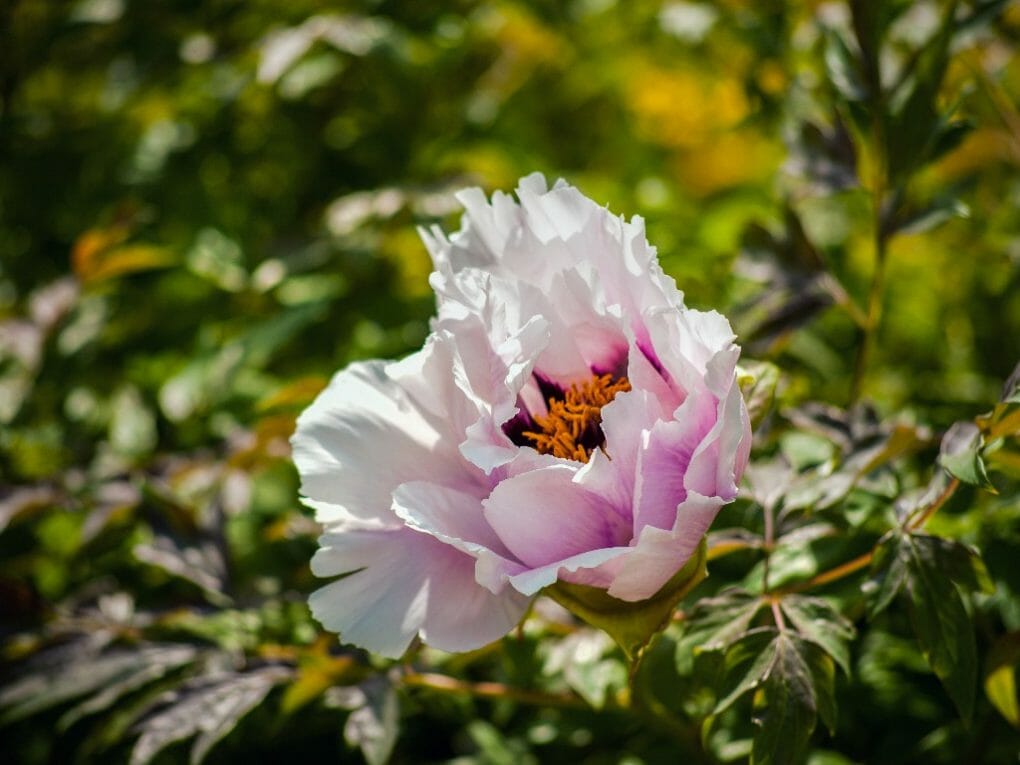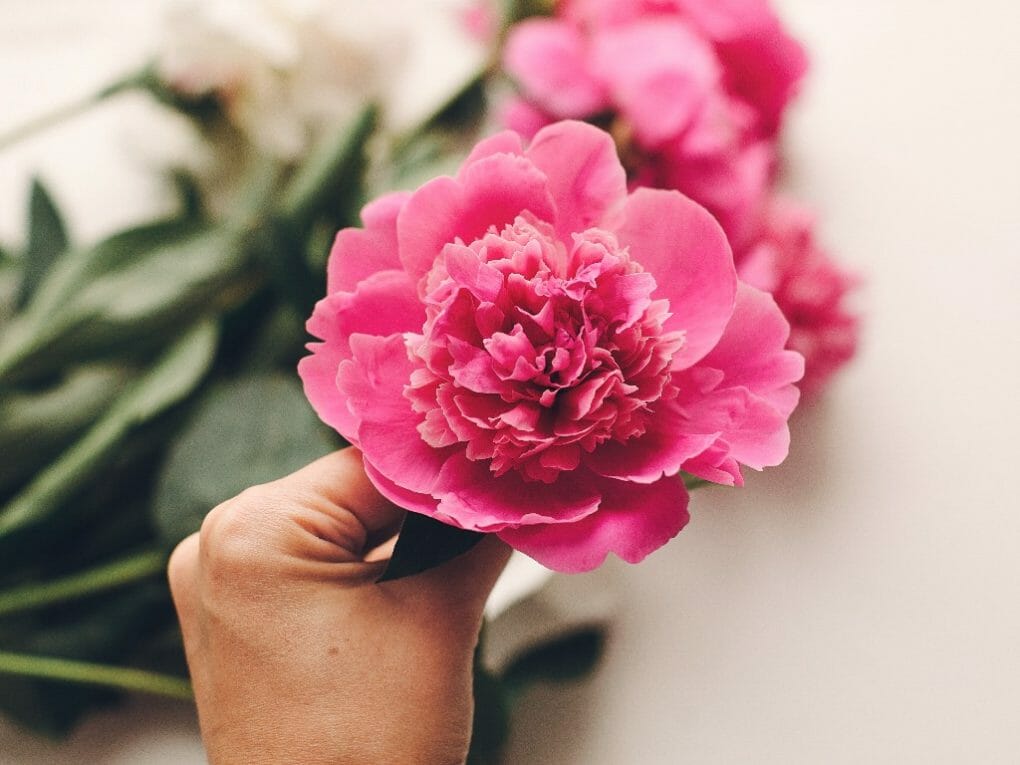Are Carnations Toxic to Humans? Know If Carnation is Harmful to Humans

Carnations are not harmful to people. The triterpenoid saponins in their leaves can irritate the skin. Leaves can cause low levels of toxicity if they are eaten. Carnations can harm animals, giving them mild skin irritation if they touch them and mild stomach upset if they eat them.
Table of Contents
Carnation Toxicity to Humans
Carnations are generally thought to be non-toxic to people. Although the carnation bloom is edible, the leaves and stem contain triterpenoid saponins, substances that many plants naturally generate but may be poisonous to some people.
Carnation leaves can, in rare instances, lead to nerve abnormalities and moderate poisoning symptoms, such as slight gastrointestinal distress, diarrhea, and vomiting, if consumed.
These small symptoms will typically go away within a few hours. Call your local poison control center or doctor if you’ve consumed some carnation leaves and you’re still feeling sick.
Carnation leaves may cause slight irritation when they touch your skin, but the itch should go quickly.
Is Carnation Plant Dangerous for Young Children?
Children who come into contact with the dianthus plant may have skin irritations from the leaves. If you suspect that your child has come into touch with dianthus plants, have them wash their skin thoroughly with soap and water. You could also give them a bath in which you add a little oatmeal to soothe and calm their skin. Although it is not typical for children to become ill with dianthus, you should always call your physician or the poison control center for advice on what to do next if you are confused about what plant your child may have come into contact with.
Is Carnation Edible for Humans?
A carnation’s petals are considered edible, as stated on the Edible Flower List provided by The Culinary Cafe. It is excellent to use them as a vibrant garnish on salads and other foods, and they can even be used as a component in some recipes. Carnations and other edible flowers are often used in upscale restaurants to provide a wide range of nuanced flavors that complement and improve various meals.
On the other hand, the Leaves themselves are Poisonous.
Both the leaves and the stem of a carnation are poisonous to humans and animals. (Refs. 2, 3.) Even though it is considered to have a low level of toxicity, if enough of it is consumed, it will cause problems with the digestive system and has the potential to induce nervous system diseases. No component of a carnation is lethally poisonous to a human being.
The presentation and the diner’s experience are elevated by using carnation petals. On the other hand, because the leaves and stems are toxic and can make one sick, they should be thrown away.
Toxicity to Animals
Dogs

Dogs are said to be slightly poisoned by carnations. The carnation leaves contain poisons that, if consumed, could upset your dog’s stomach. Diarrhea, vomiting, and anorexia are some of the signs of this.
Carnation toxicity is regarded as light, and recovery often proceeds without too many problems. But if your dog eats a carnation, it is better to call your neighborhood vet.
Your dog may develop dermatitis from skin exposure. Itching of the skin and skin irritation or inflammation are the signs of this. If you observe that your dog has dermatitis brought on by contact with a carnation, you should call your neighborhood vet as soon as possible. Overall, the chances of making a full recovery are good.
Cats
Cats should avoid carnations because of their low-level toxicity. Cats swallowing any part of a carnation, including the leaves, stem, or petals, may experience moderate gastrointestinal symptoms like diarrhea, vomiting, and, in rare cases, drooling. Carnations are among the family of flowers known as chrysanthemums. These symptoms can produce secondary symptoms such as weakness, dehydration, and a decreased appetite.
Carnation sap can also cause symptoms similar to dermatitis on cats’ lips, including reddening, swelling, and an irritated appearance. These symptoms often only endure for a brief period, typically no more than a few hours.
Dermatitis can develop on a cat’s skin if the cat comes into contact with the sap from a leaf. Ingestion of carnation by a cat has been shown to cause reactions in the stomach, esophagus, and lower digestive systems that are very similar to those caused by dermatitis in humans.
No cases of fatal carnation poisoning among cats have been documented. It would be in everyone’s best interest if they took the consumption of carnations by cats seriously at all times.
Horses
Horses should avoid contact with carnations because they can be toxic. The sap from the flowers contains a substance that can cause skin irritation and dermatitis in horses. Signs of toxicity include redness, blistering, itching, crusting or scabbing, fever, breathing difficulties, drowsiness, or coma. Ingestion of carnation by horses may also result in diarrhea and vomiting. If left untreated, toxicity may progress through tough hooves, becoming infected and even falling off due to bone decay.
Goats
Carnations are not toxic to goats in any studies that have been conducted. They may do so due to the clove-like aroma that the petals exude, which may pique the goat’s attention and lead to its consumption of the petals. If this condition is not met, the goats are not likely to be interested in eating carnations.
Chickens
It is generally accepted that carnations are safe for chickens to consume, and there have been observations of chickens enjoying the taste of carnation flowers. If you keep chickens, you can be sure that even if they consume some of your garden carnations, they won’t be in danger because the carnations won’t harm them in any way.
Rabbits
Rabbits are renowned for destroying gardens since they consume almost every plant that crosses their way and are known as scavengers. Carnations contain a substance that is somewhat harmful to rabbits; therefore, it is recommended to avoid planting them in areas where rabbits can easily access them if you have rabbits running around your home or garden.
Intoxication from carnations typically manifests itself with gastrointestinal distress, which may be followed by vomiting. If you have reason to believe that your rabbit may have taken carnation, it is in your best interest to get in touch with your veterinarian as soon as possible. Rabbit stomachs are notoriously delicate.
Cows
There is no evidence that carnations harm cows when consumed in normal amounts. Because most cows probably need access to carnations as a food source, we do not have any dependable information regarding whether or not they are toxic to cows.
Pigs
There have been claims that carnations contain chemicals that are harmful to pigs. If you are the owner of a mini-pig, you need to exercise extra caution when allowing your pig to be near carnations. If a pig consumes a carnation leaf, you should contact your neighborhood veterinarian as soon as possible.
Deer

Various sites will tell you that carnations are resistant to being eaten by deer; hence, we know that deer will not voluntarily consume these plants. The only reasonable conclusion to draw from this is that there must be a good reason for deer not to consume carnations. Carnations have a low level of toxicity for deer, or it could be that they don’t like the way carnations smell or taste. Either way, deers avoid carnations.
